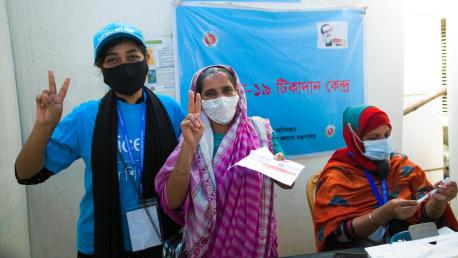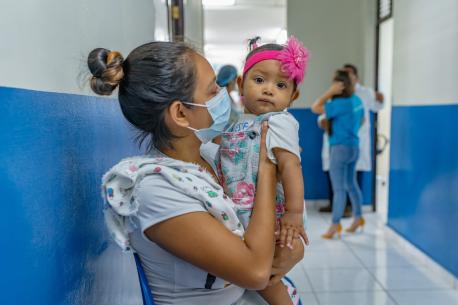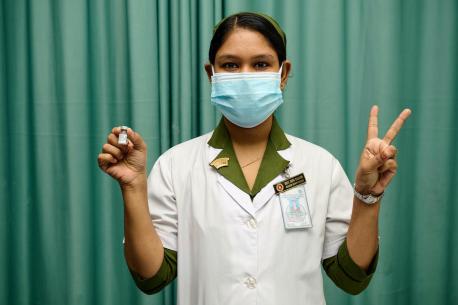
COVID-19 Vaccine Doses Donated by the U.S. Arrive in South Asia
A lifeline for a region ravaged by the global pandemic reaches Bangladesh and Pakistan — the first two countries in South Asia to receive COVID-19 vaccine doses donated by the U.S. government to the COVAX Facility, the global mechanism tasked with ensuring their equitable distribution.
The first of millions of doses of COVID-19 vaccines donated by the U.S. government to the COVAX Facility bound for South Asia — a region devastated by the coronavirus pandemic and where 1.5 billion people have yet to receive the vaccine — have arrived.
Bangladesh and Pakistan received 2.5 million doses each through the COVAX dose-sharing program, with the shipments landing in Dhaka and Islamabad on July 2. In both countries, only a tiny fraction of people have been fully vaccinated so far. Millions more doses donated by the U.S. to COVAX are expected to arrive in South Asia in the coming days and weeks.
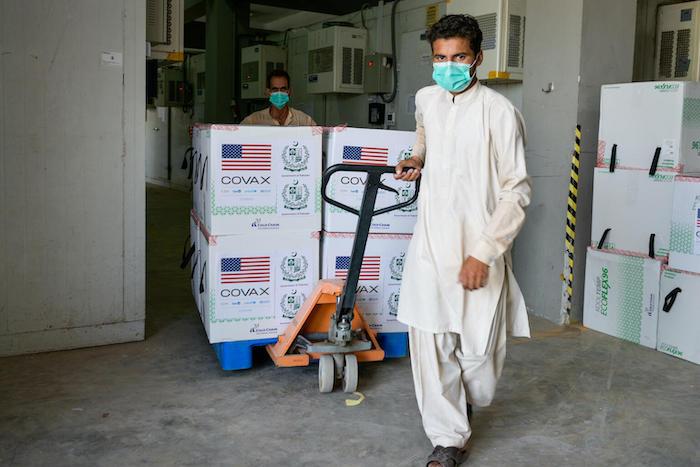
A shipment of 2.5 million COVID-19 vaccine doses — supplied through the COVAX Facility’s dose-sharing mechanism and donated by the U.S. government — arrives in Islamabad, Pakistan, on July 2. © UNICEF/UN0484378/Malik
"These donations... are a lifeline for a region which has been ravaged by the COVID-19 pandemic, which has claimed over 450,000 lives so far and left countless numbers of children without parents and sole carers," George Laryea-Adjei, UNICEF Regional Director for South Asia, said in a statement.
Cases of COVID-19 in South Asia increased by 9.5 million between late April and late May — a 30 percent spike
South Asia, home to roughly 2 billion people, accounts for half of all new, known infections globally. As of May 31, there were 30,785,067 confirmed cases in the region — a 9.5 million jump just since late April, according to the most recent situation report.
"These vaccines will provide much-needed relief to a region where COVID-19 vaccination rates remain unacceptably low due to a severe lack of supplies," Laryea-Adjei said. "While some regions are returning to normal, South Asia is still suffering."
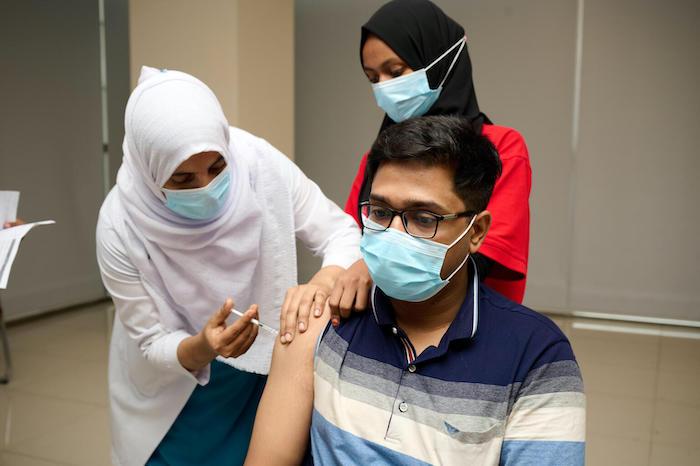
Health worker Mohammad Mofiz, 30, one of the first to be vaccinated against coronavirus at Bangabandhu Sheikh Mujib Medical University, Dhaka, Bangladesh, said he was happy to receive the vaccine because now he can serve patients with less risk of getting infected. The country is focusing immunization efforts on health and other frontline workers, teachers, the elderly and other vulnerable populations. © UNICEF/UN0482635/Sujan
Over 7 million health workers in South Asia are still not fully vaccinated against COVID-19. Many teachers are also still waiting, while the region faces new variants and braces for a possible third wave of infections following India's catastrophic coronavirus surge. Just weeks ago, doctors in Nepal were reporting "terrifying" conditions while battling a second wave there. The virus' impact on children is also a rising concern as the pandemic continues to disrupt essential services.
COVAX is the multi-agency global mechanism for equitable access to COVID-19 vaccines, a pillar of the Access to COVID-19 Tools Accelerator initiative (ACT-A). UNICEF is a key partner in COVAX and ACT-A, leading on procurement and providing on-the-ground support to prepare for and facilitate vaccine rollouts around the world.
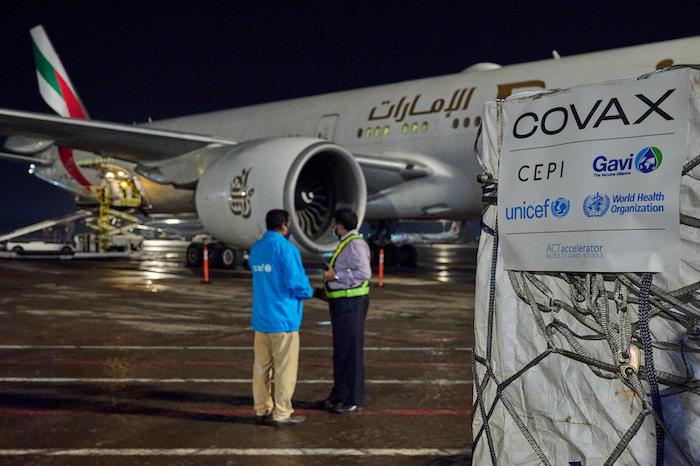
A shipment of 2.5 million COVID-19 vaccine doses — supplied through the COVAX Facility’s dose-sharing mechanism and donated by the U.S. government — arrives in Dhaka, Bangladesh, on July 2. © UNICEF/UN0484223/Sujan
A global vaccine distribution mechanism that works
Between February and mid June, COVAX had delivered almost 93 million doses to 134 countries and economies around the world — from remote islands to conflict settings. While leading in vaccine procurement and supply of safe, effective and affordable COVID-19 vaccines in low- and middle-income countries on behalf of COVAX and supporting national vaccination campaigns, UNICEF is also providing countries with emergency oxygen, diagnostic tests, masks and medicines needed to treat coronavirus patients.
UNICEF has also been working with countries to strengthen cold chain systems to ensure safe vaccine storage and transport. Risk communication and community engagement activities, another focus of UNICEF's global response efforts, aim to help increase vaccine uptake, in part by dispelling myths and misinformation.
Learn more about UNICEF's role in COVAX and the global fight to end the pandemic.
Help UNICEF rush critical supplies, services and vaccines to those who need them the most in South Asia and around the world. Please donate today.
Top photo: A trained vaccinator at Kurmitola General Hospital, Dhaka, Bangladesh, flashes V for victory — also V for vaccine — as COVID-19 vaccinations ramp up in the country, with support from UNICEF and the COVAX Facility. © UNICEF/UN0482594/Sujan
